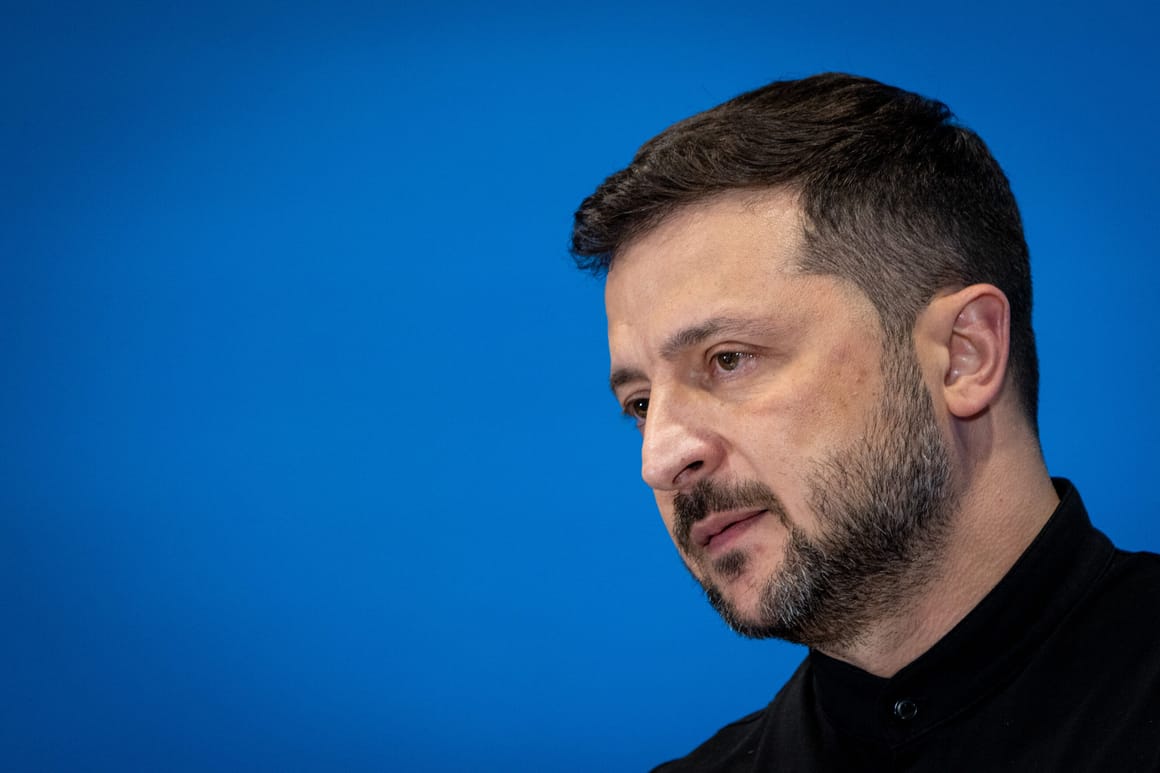Politics
Zelenskyy Urges New Peace Talks with Russia Amid Ongoing Attacks

Ukrainian President Volodymyr Zelenskyy has called for intensified peace negotiations with Russia, announcing that Kyiv has proposed a new round of talks to take place next week. In a video address shared on social media platform X, Zelenskyy indicated that Rustem Umerov, recently appointed secretary of Ukraine’s National Security and Defense Council, is advocating for a meeting with Russian officials.
“The pace of negotiations must be increased,” Zelenskyy stated, emphasizing the need for all efforts to focus on achieving a ceasefire. While the Ukrainian side has expressed readiness for a ceasefire contingent upon Russia halting its attacks, Russian President Vladimir Putin has thus far dismissed similar calls from various international leaders, including former U.S. President Donald Trump.
In the latest escalation, Russian forces launched a significant attack on Ukraine, deploying over 300 strike drones and 30 missiles against several Ukrainian cities on the night of March 1, 2024. This assault included strikes on the port city of Odessa, resulting in one fatality and leaving six others injured, according to Zelenskyy’s statements.
Zelenskyy also highlighted ongoing drone strikes on Moscow, reported by local officials and media outlets, indicating a broader conflict that extends beyond Ukrainian borders. Amid these tensions, the Ukrainian president reiterated his commitment to pursuing diplomatic avenues, stating, “A meeting at the level of leaders is needed to truly ensure peace — a really lasting one.” He expressed that Ukraine is prepared for such a discussion with Putin.
In addition to diplomatic efforts, Zelenskyy is working to implement the European Union’s 18th package of sanctions against Russia, seeking cooperation from European nations that support Ukraine but are not EU members. He also mentioned agreements with Trump regarding a new arms deal, which encompasses the procurement of U.S.-made weaponry and the export of Ukrainian drones, emphasizing the urgency of these arrangements.
With the situation remaining volatile and the prospect of peace talks looming, Zelenskyy’s administration appears determined to navigate these complex negotiations while addressing the immediate security concerns posed by ongoing Russian aggression. The international community watches closely, with many hoping for a resolution that will bring an end to the prolonged conflict.
-

 Top Stories3 months ago
Top Stories3 months agoTributes Surge for 9-Year-Old Leon Briody After Cancer Battle
-

 Entertainment4 months ago
Entertainment4 months agoAimee Osbourne Joins Family for Emotional Tribute to Ozzy
-

 Politics4 months ago
Politics4 months agoDanny Healy-Rae Considers Complaint After Altercation with Garda
-

 Top Stories4 months ago
Top Stories4 months agoIreland Enjoys Summer Heat as Hurricane Erin Approaches Atlantic
-

 World5 months ago
World5 months agoHawaii Commemorates 80 Years Since Hiroshima Bombing with Ceremony
-

 Top Stories3 months ago
Top Stories3 months agoNewcastle West Woman Patricia Foley Found Safe After Urgent Search
-

 Top Stories5 months ago
Top Stories5 months agoFianna Fáil TDs Urgently Consider Maire Geoghegan-Quinn for Presidency
-

 World5 months ago
World5 months agoCouple Convicted of Murdering Two-Year-Old Grandson in Wales
-

 World5 months ago
World5 months agoGaza Aid Distribution Tragedy: 20 Killed Amid Ongoing Violence
-

 World5 months ago
World5 months agoAristocrat Constance Marten and Partner Convicted of Infant Murder
-

 Top Stories4 months ago
Top Stories4 months agoClimbing Errigal: A Must-Do Summer Adventure in Donegal
-

 Top Stories4 months ago
Top Stories4 months agoHike Donegal’s Errigal Mountain NOW for Unforgettable Summer Views









